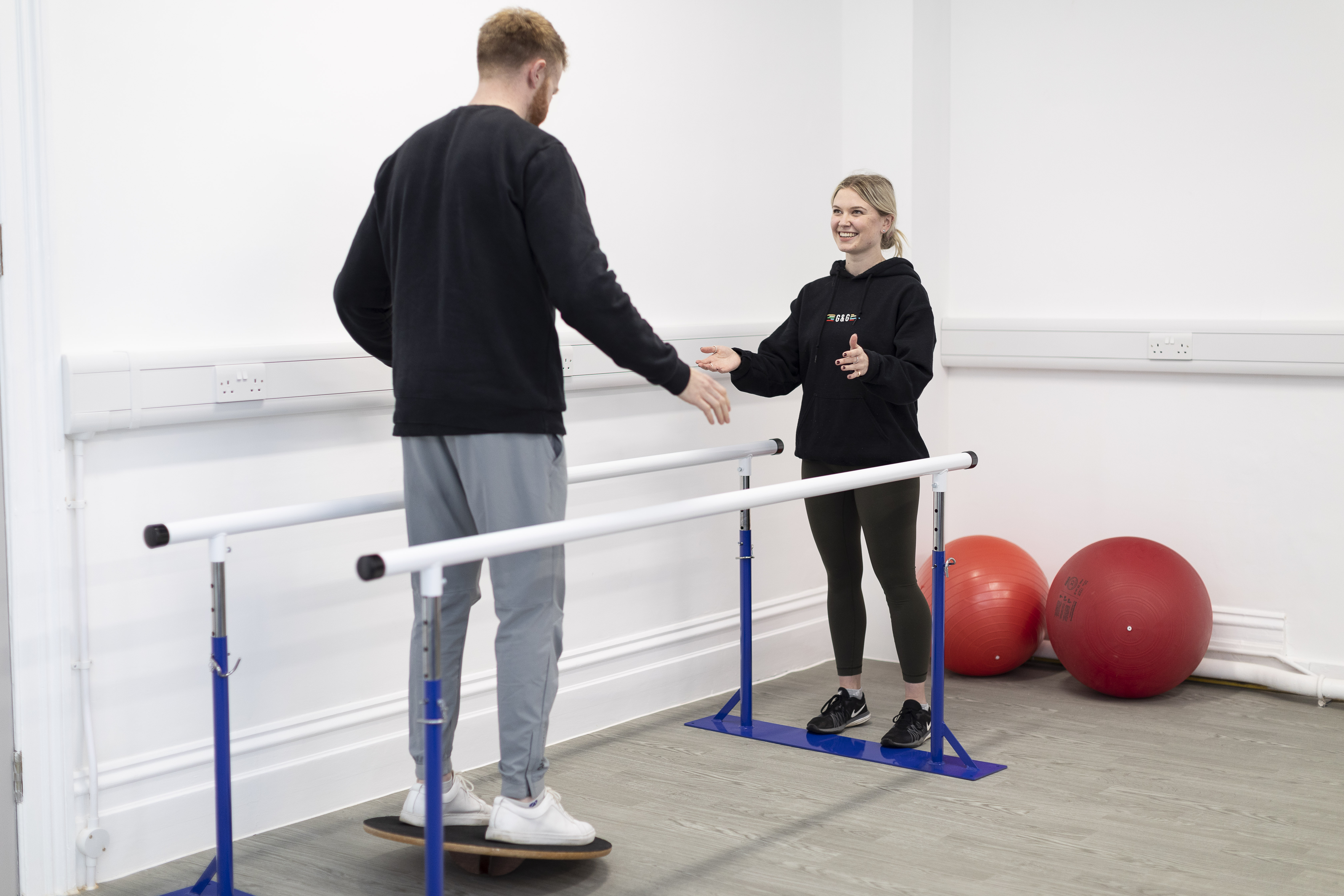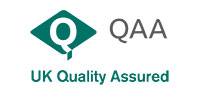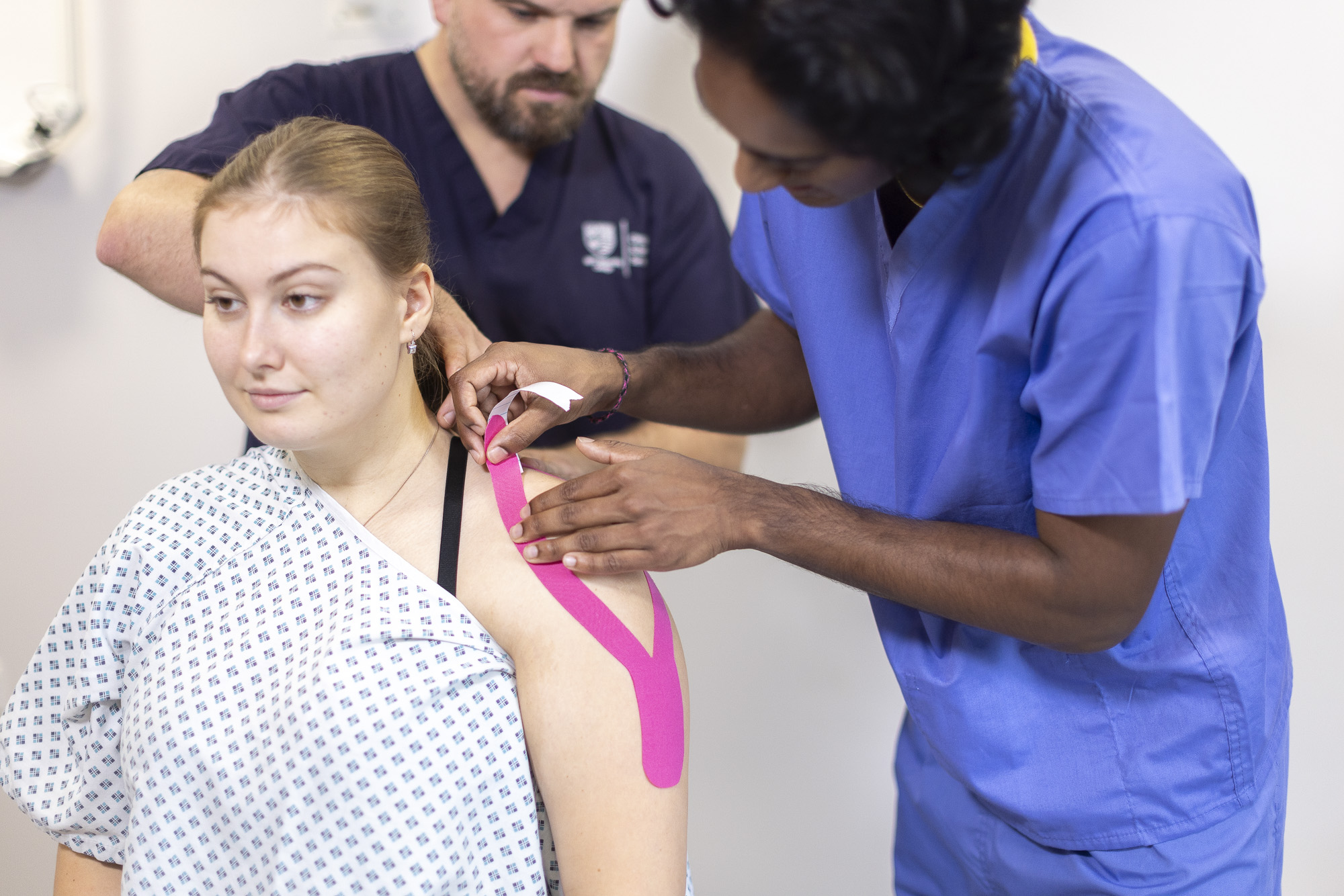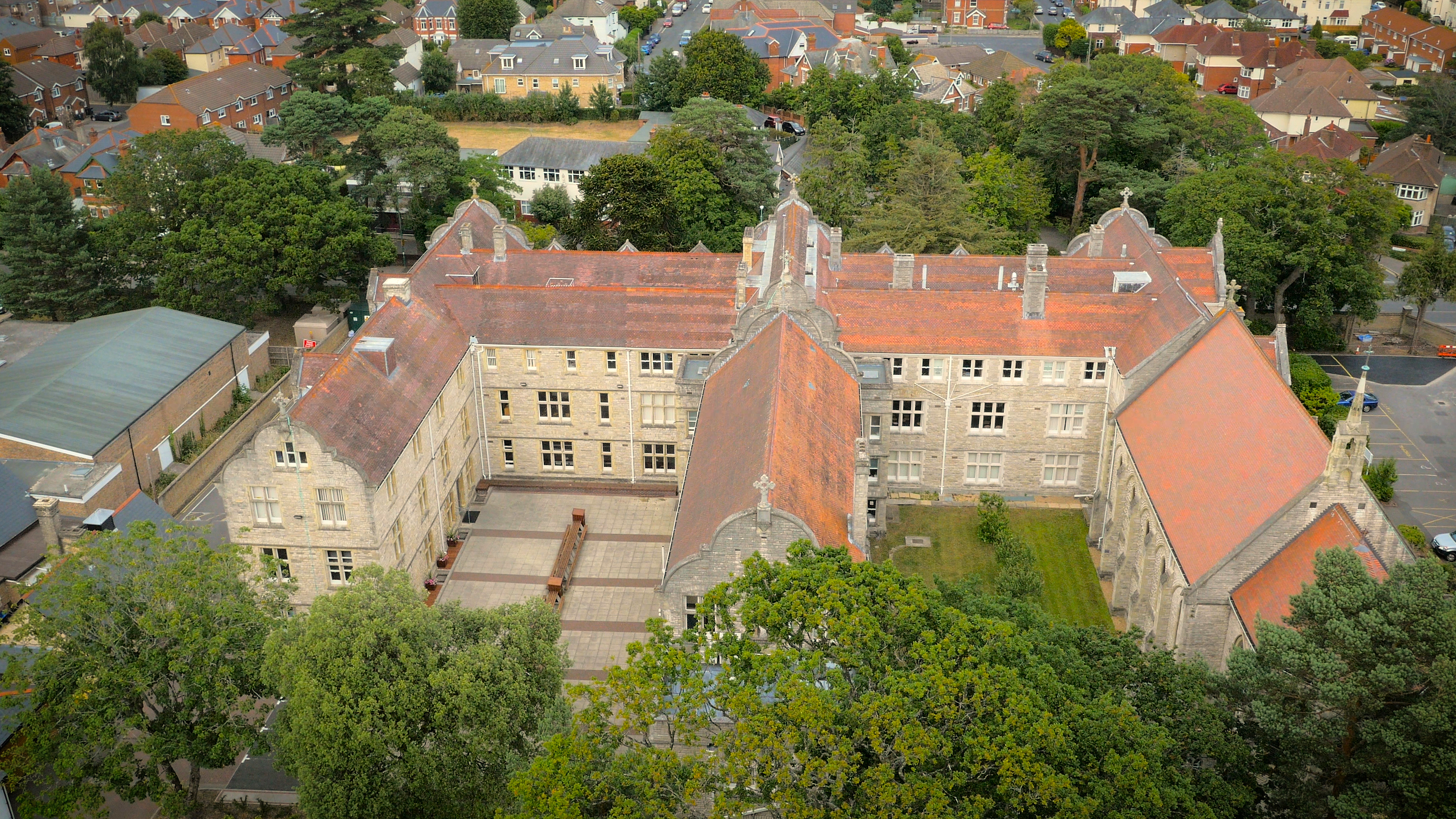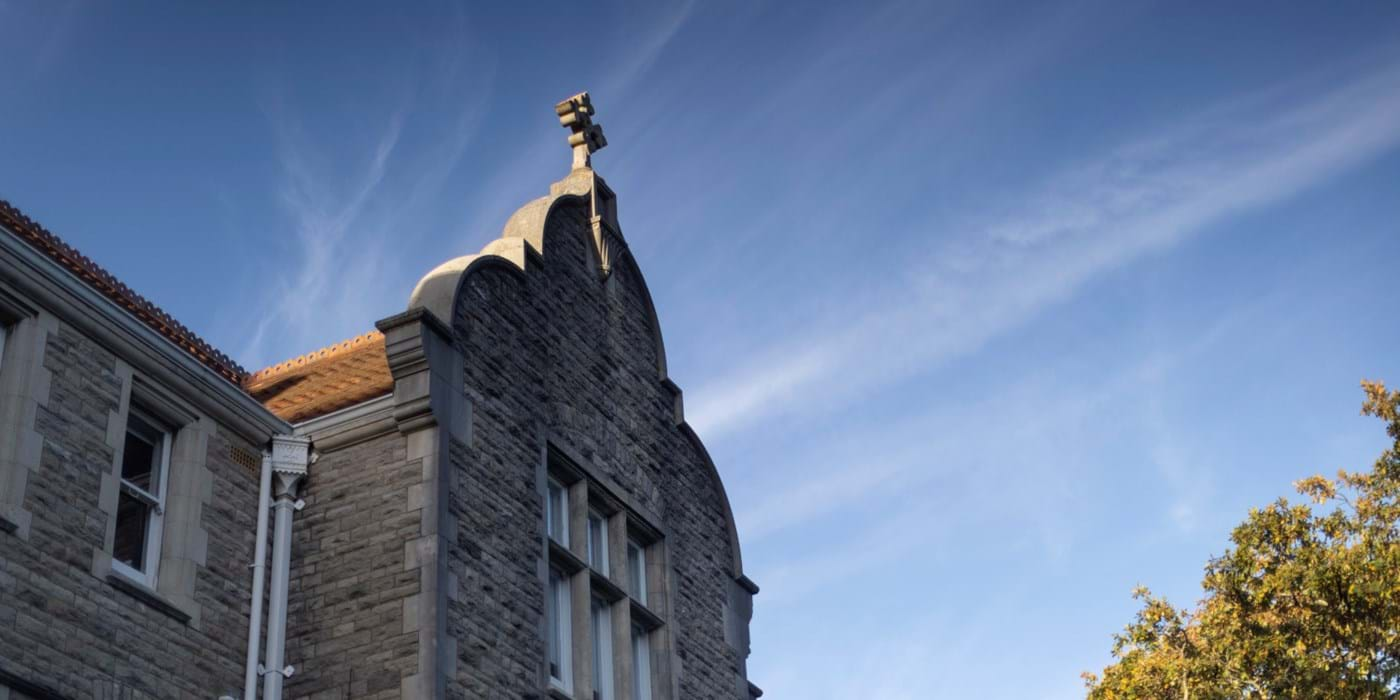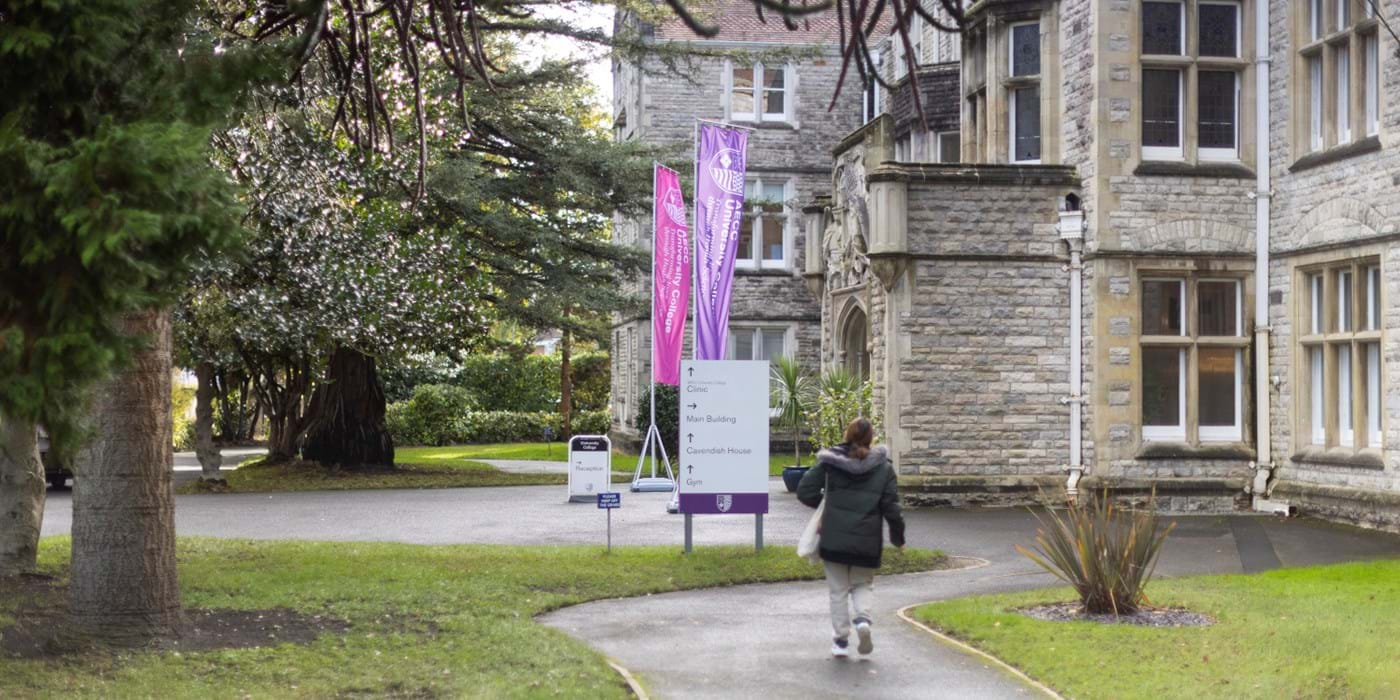Overview
If you’re a healthcare professional wishing to further develop your sport and exercise expertise, our MSc Sport and Exercise Rehabilitation course offers an innovative curriculum designed to meet your needs. This course is designed to further develop your knowledge, practical skills and expertise relating to rehabilitation in sport and exercise domains.
We also provide the opportunity to further develop assessment, treatment and intervention skills and the course will allow for a greater depth of knowledge and expertise regarding specialised domains of practice including: working with neurological conditions, para and disability sport, and cardiac rehabilitation, while at the same time developing knowledge in key areas such as the psychology of injury, pain, and rehabilitation, sports rehabilitation and clinical assessment.
Course Details
Why study for a MSc Sport and Exercise Rehabilitation at Health Sciences University?
We offer an innovative curriculum designed to meet the needs of healthcare professionals wishing to further develop their sport and exercise expertise. We have fantastic state-of-the art healthcare education provision including onsite clinics, imaging services, treatment spaces and a pro-section laboratory.
Structure of study with key unit highlights.
We utilise a diverse range of delivery approaches to maximise learning in individual units. Delivery modes include: seminars, workshops, practice sessions, placement opportunities peer and expert observations, online learning and practical laboratory sessions.
The course is currently delivered two days per week during term-time with practical face-to-face delivery. Students will be expected to undertake allocated work outside of these days during the week, equivalent of a further day per week. Students are encouraged to undertake additional self-directed learning into topics they find interesting outside structured hours.
How you will be assessed
The course utilises a range of contemporary approaches to assessing learning, whilst also seeking to develop key practitioner skills, specialist expertise, and interdisciplinary approaches. So alongside more traditional dissertation and essay assessments students will also engage in practical assessments, write blogs, produce short videos, engage with social media, write consultancy reports, and engage in debates.
Need more info about, learning aims and outcomes, curriculum content, teaching methods and assessment, credits per unit? Take a look at our Course Specification to find out more.
Additional information
There is also the opportunity to register for the whole qualification (Masters degree), a part qualification (e.g., PgCert), or to simply study one unit that you are particularly interested in. This course utilises a range of contemporary approaches to assessing learning, whilst also seeking to develop key practitioner skills, specialist expertise, and interdisciplinary approaches.
To find out more about this course, read the specification below:
MSc Sport and Exercise Rehabilitation – Course Specification
Unit Breakdown
Clinical Assessment in Sport and Exercise 
Units
(Optional Unit)
SEH7002 – Clinical Assessment in Sport and Exercise
This unit will prepare aspiring sport and exercise rehabilitators and healthcare practitioners to critically assess, treat, and make clinical decisions about sport and exercise service user care which may include working in a multi professional context.
In this unit you will develop an in-depth understanding of relevant clinical assessment processes and procedures and develop your own skills in clinical assessment.
Research Methods in Health Sciences 
Units
(Core Unit)
PSY7001 – Research Methods in Health Sciences
Therapeutic Intervention and Manual Therapy 
Units
(Optional Unit)
SEH7007 – Therapeutic Intervention and Manual Therapy
In this unit you will be introduced to a variety of manual therapy techniques and therapeutic interventions used in the treatment of soft tissue, peripheral joint and vertebral joint injuries and dysfunctions. You will also learn how to apply sport and remedial massage techniques using advanced soft tissue techniques in a safe and effective manner. Completion of this unit does not qualify the student to practice in Sports Massage outside of relevant professional registration.
Muscle Injury Ultrasound 
Units
(Optional Unit)
SEH7004 – Muscle Injury Ultrasound*
This unit will provide you with an opportunity to develop an understanding of muscle injury ultrasound.
In particular, you will develop an understanding of the requirements for musculoskeletal practitioners in the safe use of diagnostic ultrasound imaging and in the competent interpretation of ultrasound reports and visualisations for upper and lower limb muscle conditions.
Please Note: May be subject to change
Supporting Disabled and Para Athletes 
Units
(Optional Unit)
SEH7003 – Supporting Disabled and Para Athletes
This unit will provide you with the opportunity to consider the complexities of working with disabled and para athletes of all levels. You will explore physiological, psychological and biomechanical support and testing for disabled and para athletes, as well as the influences of medical treatments on performance parameters. There will also be the opportunity to gain an understanding of classification systems and the process of classifying an athlete’s disability.
Please note: May be subject to change.
Principles of Sport and Exercise Rehabilitation 
Units
(Optional Unit)
SEH7001 – Principles of Sport and Exercise Rehabilitation
In this unit you will develop an understanding of the practice of sport and exercise rehabilitation. You will consider the contemporary nature of sport and exercise rehabilitation practice and the development of clinical and practical skills relating to rehabilitation. You will also explore fundamental underpinning health science theory including functional anatomy, flexibility, physiology and biomechanics. There will also be the opportunity to explore the factors that contribute to sport injuries, the various approaches used in their management, and approaches to improve the athletes’ overall ability to return to optimal function and performance. Finally, you will evaluate the effectiveness of various multi-disciplinary management approaches used in sport rehabilitation programmes.
Independent Study 
Units
(Optional Unit)
PSY7003 – Independent Study
This unit will provide you with the opportunity to undertake an in-depth systematic review of current knowledge and understanding in a particular subject of interest. You will, in negotiation with the unit leader, agree a programme of work for the completion of the review. In terms of the approach, you will be required to adopt a systematic approach to the review of literature and to be able to comprehensively summarise current understanding in your chosen field.
Mental Health 
Units
(Optional Unit)
PPS7008 – Mental Health
This unit will enable you to develop an understanding of mental health and mental ill-health. In particular, the unit will enable you to develop an understanding of common mental health challenges faced and consider some of the specific challenges that are more prevalent in specific populations. You will also explore key symptoms relating to a range of conditions, and crucially develop an understanding of specific interventions and referral options whilst also reflecting on the boundaries of your own professional competence relating to client mental health challenges
Psychology of Injury, Pain and Recovery 
Units
(Optional Unit)
PSY7009 – Psychology of Injury, Pain and Recovery
This unit will provide you with the opportunity to develop an advanced understanding of the psychological factors both influencing and determining the individual’s response to injury, rehabilitation and recovery.
Building on a strong conceptual foundation, you will explore a range of psychologically-focused intervention skills and their application across a range of trauma and rehabilitation contexts. The concept of pain will be explored, developing an understanding of key influencing factors, and you will also explore the psychological challenges associated with a return to full functioning post injury.
Rehabilitation of Neurological Conditions 
Units
(Optional Unit)
SEH7006 – Rehabilitation of Neurological Conditions
In this unit you will develop an understanding of the processes underpinning the rehabilitation of the most common neurological conditions.
In particular, you will consider the most contemporary rehabilitation techniques based around the promotion of neuroplasticity and neural repair. You will also develop an understanding of the key features and symptoms of progressive and degenerative diseases, and sudden onset neurological conditions both in the acute and chronic phases. Finally, you will consider how exercise and physical activity can aid recovery.
Cardiac Rehabilitation 
Units
(Optional Unit)
SEH7005 – Cardiac Rehabilitation
In this unit you will critically examine contemporary knowledge and best practice relating to the rehabilitation of a range of cardiac conditions.
In the unit you will explore the factors that contribute to the development of coronary heart disease, the medication used in its treatment, and the implications for exercise prescription within cardiac patient groups.
Finally, you will also evaluate the effectiveness of a range of cardiac rehabilitation programmes.
Sports Vision (Online) 
Units
(Optional Unit)
PSY7010 – Sports Vision (Online)
This unit will provide you with the opportunity to gain an advanced knowledge of psychological, biological and physiological factors underpinning visual perception and action.
Building upon a foundation of perception, action, and decision-making theoretical knowledge, you will learn how to identify underlying visual issues with athletes as well as ways to integrate sports vision training into other coaching practices.
The unit will also consider other ways in which vision can impact on the athlete such as the links with concussion and rehabilitation.
You will have the opportunity to learn screening methods and design training programmes appropriate to a range of athletes from different sports.
Counselling Skills (Online) 
Units
(Optional Unit)
PSY7007 – Counselling Skills (Online)
This unit will provide you with opportunity to develop an understanding of those psychological factors that determine the individuality of the client/patient.
Through the development of an appropriate contemporary theoretical foundation you will explore what makes each person unique, and how an awareness of these differences can enhance your ability to communicate and build
rapport with individual patients/clients.
A core focus of the unit is the development of counselling and communication skill.
As a result, you will engage in practical activities that will develop your counselling and communication skills, and develop greater self-awareness of your interpersonal interaction strengths and areas for development.
Dissertation 
Units
(Core Unit)
MUS7065 – Dissertation
This unit will provide you with the opportunity to undertake an in-depth, independent and original empirical study in a topic of interest related to your professional practice. Completion of the dissertation unit will give you the opportunity to demonstrate your comprehensive understanding of the research process, data collection skills and the ability to engage with complex concepts systematically and creatively. You will also develop, and be expected to demonstrate, your ability to communicate research findings in a clear and concise manner.
Staff
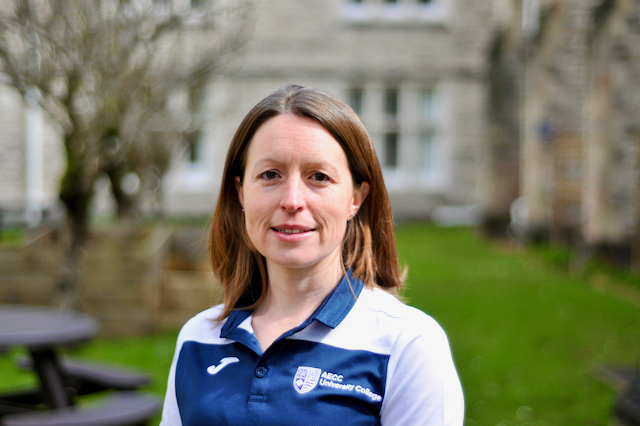
Course Leader
Michelle Evans
Lecturer in Sport and Exercise Rehabilitation
Michelle joined Health Sciences University as a Lecturer in Sport and Exercise Rehabilitation, teaching on the MSc Sport Rehabilitation and Therapy and MSc Sport and Exercise Rehabilitation courses.
Full bioEntry Requirements
How do I apply? 
Applications for MSc Sport and Exercise Rehabilitation are now open, please follow the link below to our online application system.
If you’re not sure about anything listed here, talk to our Admissions team on the form below or call us on 01202 436200 and we’ll be happy to answer any questions you have.
What qualifications do I need? 
What qualifications do I need?
Normally a first or second-class (2:1 or 2:2) Honours degree or professional experience in the area of study.
Appropriate subject areas for the programme are BSc Sports Therapy, BSc Sport Rehabilitation, BSc Physiotherapy or any other UG degree that comes with eligibility for professional registration in a subject allied to health.
Is there anything else that is required? 
Is there anything else that is required?
If you live in the UK, and undertake a placement, we’ll need a satisfactory Disclosure and Barring Service (Enhanced DBS) check. We will guide you through this process if required. To gain a place on the course some applicants may be requested to attend an interview which may take place in person or remotely via Teams, you will be contacted beforehand to confirm.
International Students 
International Students
Please note to be accepted onto this course; you will also need to demonstrate that you meet the minimum standards of English. You’ll need a minimum IELTS (academic) overall score of 6.0 with no less than 5.5 in each section.
For further information on English language requirements, please see the dedicated English language requirements page.
Students from outside the EEA (European Economic Area) requiring a Student Visa to undertake this course should note that Health Sciences University is not able to sponsor them for a part-time study mode, and will therefore not be able to consider them for a place of study.
If your qualification is not listed here, please take a look at our international entry requirements page or get in touch with our admissions team on the form below. Please note, to be accepted onto this course; you will also need to demonstrate that you meet the minimum standards of English. For further information on English language requirements, please see the dedicated English language requirements page. More information on permission to study in the UK, can be found on our Visas and Immigration page.
For more information about our admissions policies and procedures, including our Admissions Complaints and Appeals Policy, see latest policies.
For general questions on the MSc Sport and Exercise Rehabilitation qualification or to register your interest in the course, please use the contact form below.
Still have questions about applying?
Course Fees
Our current course costs for the MSc Sport and Exercise Rehabilitation course are per annum and are shown below.
Home/ROI/Channel Islands
2024/25
- £8,619. These are the fees for the full MSc (180 credits)
- £479 (Per 10 credit)
2025/26
- £9,048 These are the fees for the full MSc (180 credits)
- £502.50 (Per 10 credit)
International
2024/25
- £16,419. These are the fees for the full MSc (180 credits)
- £912 (Per 10 Credit)
2025/26
- £17,226 These are the fees for the full MSc (180 credits)
- £957 (Per 10 Credit)
International students will be required to pay a non-refundable £1,000 tuition fee deposit to secure their place on the course. These deposits will need to be paid by August 31st 2024 and more details will be provided in your offer email.
Further details about how to make this payment can be found on our Fees and Funding Information page.
Find out information on additional costs associated with this course.
Please note: These fees are for the 2024-25 & 2025-26 academic year only and may be subject to increase in subsequent years of study. Any increase will be in line with our Tuition Fees Policy but will not be more than 5%.
Note: For students to be eligible for funding from Student Finance England, they must be studying on an eligible course at a provider registered with the Office for Students (OfS). Health Sciences University is registered with the OfS. You can view the register and search for our name.
Our tuition fees policy can be found on our latest policies page.
Additional Course Costs
UK-domiciled applicants are required to undergo an Enhanced Disclosure and Barring Service (DBS) check. Further information will be sent to those who accept our offer. Applicants must meet the costs of this check (£48.95 in 2024). Students from low-income backgrounds eligible for bursary support from the HSU may be able to have this funded.
For more information see Additional Costs page.
Register your Interest
Register your Interest / Enquiry 

Why choose Health Sciences University
There are many benefits to studying at Health Sciences University, from our expertise and history in teaching health sciences, to our state-of-the-art facilities, on-site clinical training, and of course our location on the beautiful Bournemouth coast.
